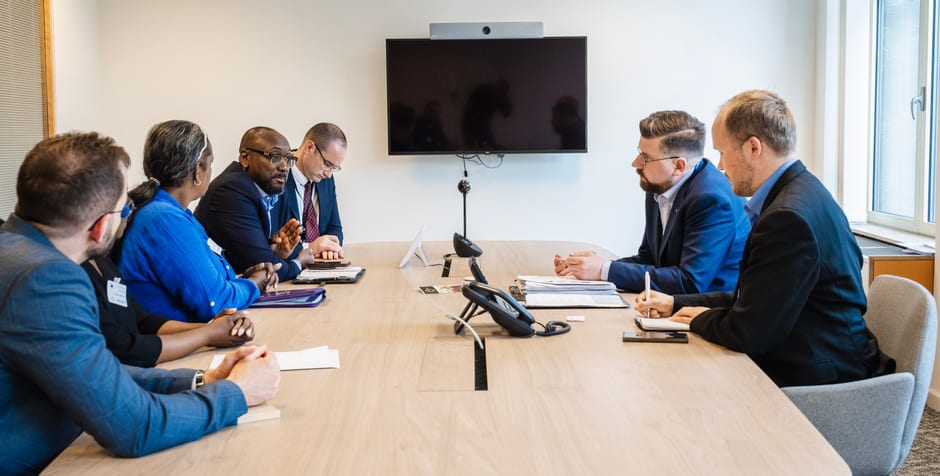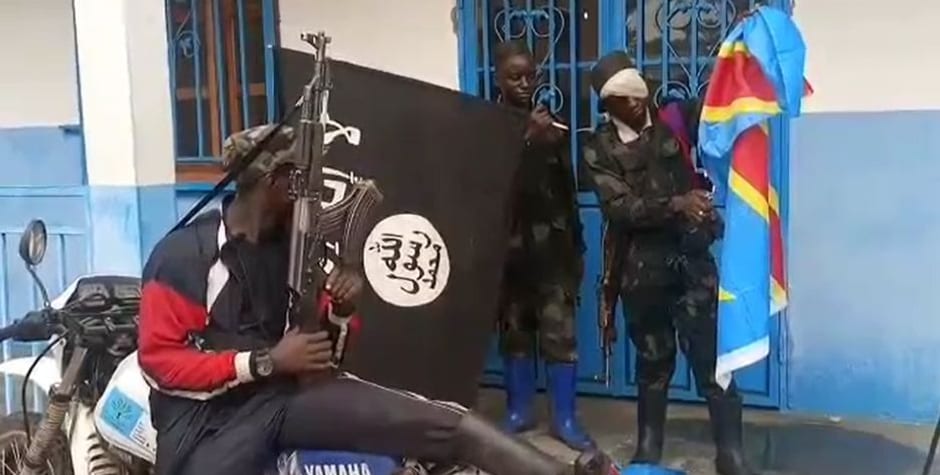"I come from one of the richest countries on the planet, and yet the people of my country are among the poorest in the world."[1]
— Denis Mukwege, Nobel Peace Prize Laureate 2018
This statement by Congolese doctor Denis Mukwege captures the tragedy of the Democratic Republic of the Congo (DRC) in a single sentence. Rich in natural resources, this vast Central African country has been plagued for decades by endemic violence and chronic instability, particularly in its eastern region.
A Land of Riches Stained by Conflict
Weakened and riddled with corruption, the DRC has proven unable to protect its population. Today, over 200 armed groups operate within its territory. Among them, two stand out for their brutality and influence: the ADF (Allied Democratic Forces), affiliated with the Islamic State, and the M23 (March 23 Movement), backed by Rwanda.
The roots of the conflict are complex and deeply embedded. They stem from the regional wars of the 1990s and involve struggles over control of resources, ethnic rivalries, and geopolitical tensions with neighboring countries. The consequences of the 1994 genocide of Tutsis by Hutus in Rwanda are still felt today.
A major humanitarian and religious crisis
Since January 2025 alone, atrocities committed by these armed groups have led to the deaths of at least 7,000 people, the displacement of 700,000 others, and sexual violence on a staggering scale, with one child falling victim every 30 minutes.
Far from being purely political or ethnic, this violence also has a religious dimension. Christians are specifically targeted. In February 2025, the ADF beheaded 70 Christians inside a Protestant church in Kasenga (North Kivu), a horrific massacre that the ECLJ brought to the attention of international institutions.
This reality was officially acknowledged by the European Parliament in a resolution adopted on 3 April 2025 (2025/2612(RSP)), calling for targeted sanctions to defend religious freedom and ensure security. As Dr. Mukwege rightly states, “Silence is the weapon of the oppressors.”[2] The European Union can no longer stand by. The time for action is now.
The ECLJ action on the ground and within international institutions
In response to this emergency, the European Centre for Law and Justice (ECLJ) has taken concrete steps. We invited Camille and Esther Ntoto, founders of the Congolese NGO Africa New Day, to testify in Europe. Based in Goma, at the heart of the conflict zone, they work to break the cycle of violence, poverty, and inequality through education, economic development, and the empowerment of women.
Their testimony, along with field data, enabled the ECLJ to submit an official contribution to the United Nations Special Rapporteur on the human rights of internally displaced persons, ahead of her mission to the DRC scheduled for 19–30 May 2025.
Our report paints a stark picture: nearly 7.3 million internally displaced persons in the DRC, well-documented religious persecution, including massacres of Christians by the ADF, and a surge in sexual violence (UNICEF recorded over 10,000 cases in January and February 2025 alone). A climate of near-total impunity prevails in the country. The ECLJ also issued concrete recommendations to strengthen local humanitarian aid and support international investigations on the ground.
Continuing advocacy in Europe for Congolese Christians
Following an initial awareness mission in the United States, Camille and Esther Ntoto are continuing their advocacy efforts across Europe. From 14 to 16 May 2025, the ECLJ will be in Brussels to meet with political leaders, including Members of the European Parliament from the “Freedom of Religion” intergroup, members of the Subcommittee on Human Rights, and officials from the European External Action Service (the EU’s diplomatic arm).

The goal is clear: to amplify the voices of Congolese victims and turn the European Parliament’s recent resolution into concrete and lasting action.
Lord, we pray for the people of Congo. You see the tears of mothers, the cries of children, the anguish of displaced families. Come comfort those who mourn, protect those who flee, lift up those who fall. Bring an end to violence, to massacres, and to rape. Disarm the oppressors, strengthen the peacemakers. Open the hearts of political leaders. And may Your Church rise, firm and gentle, as a sign of hope in the midst of chaos.
Huet Manaëm















